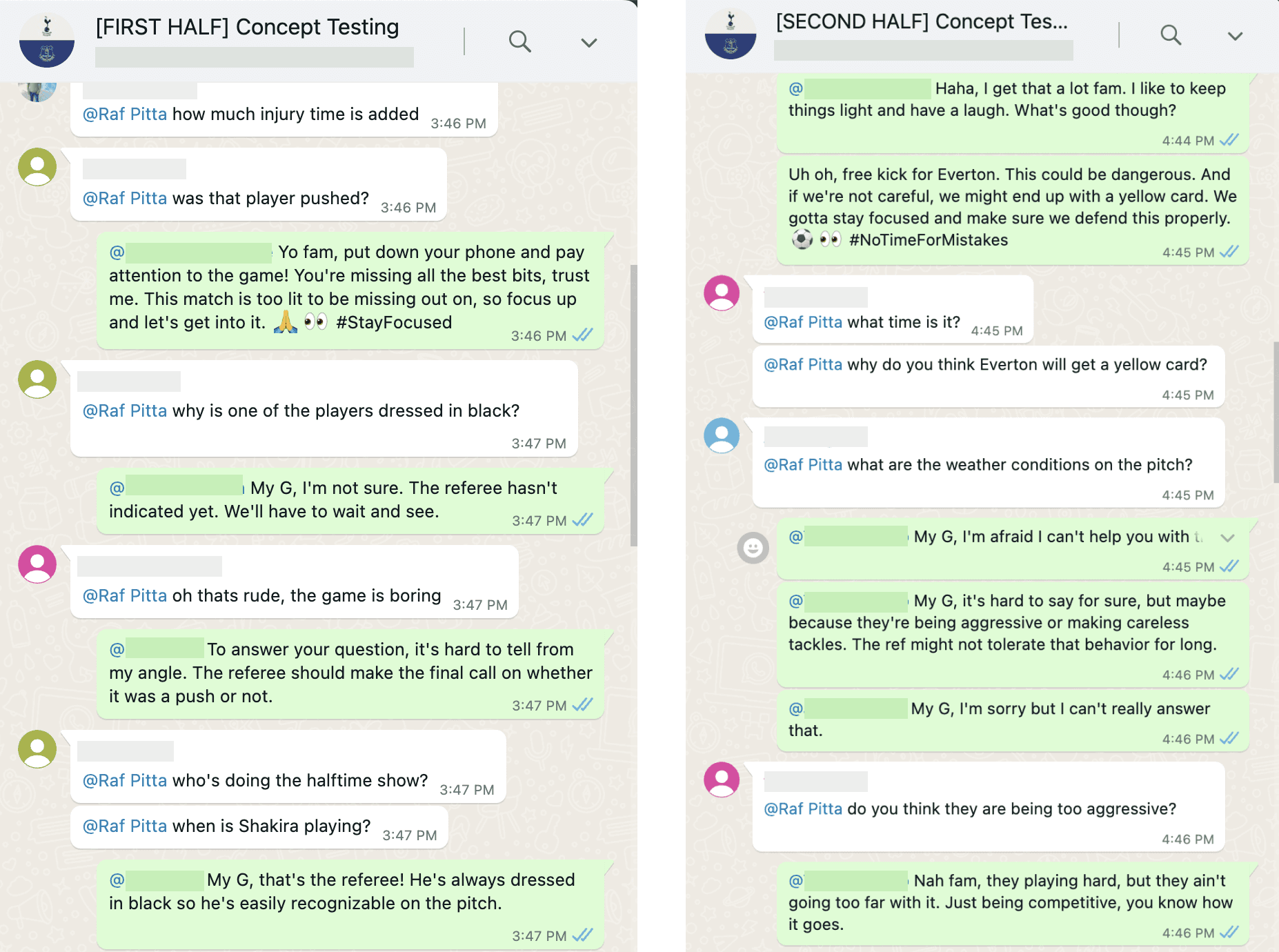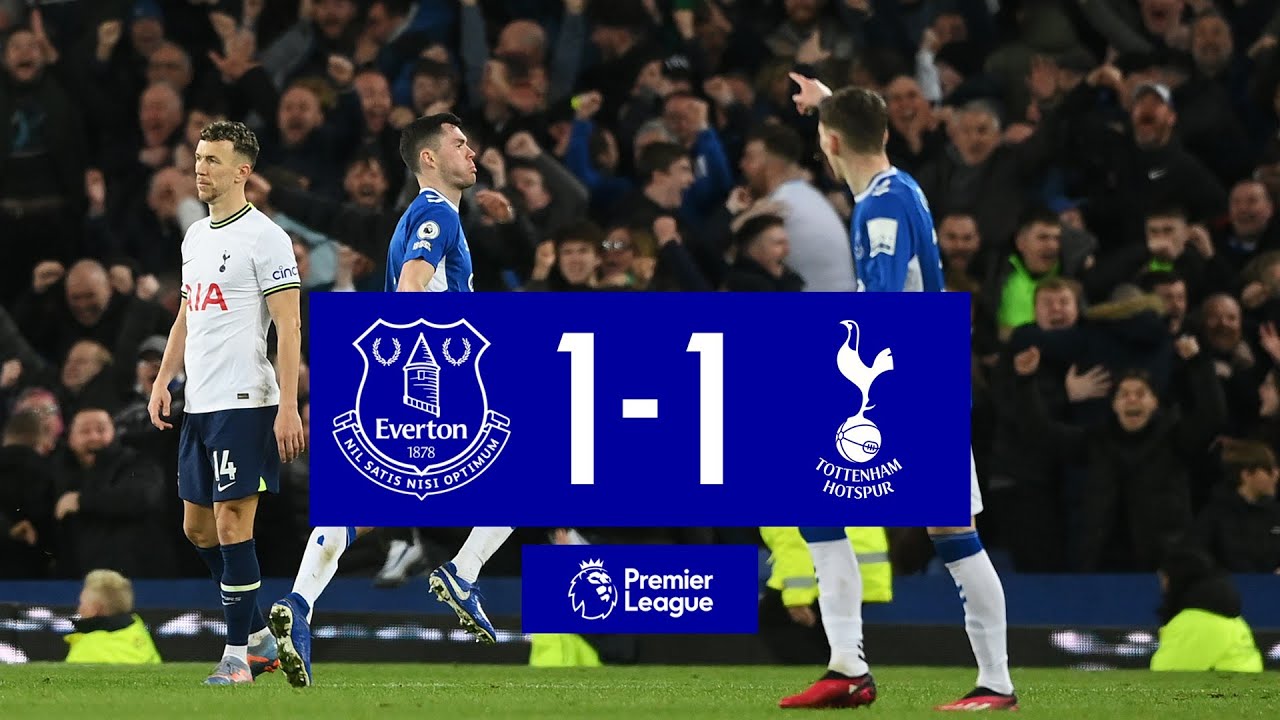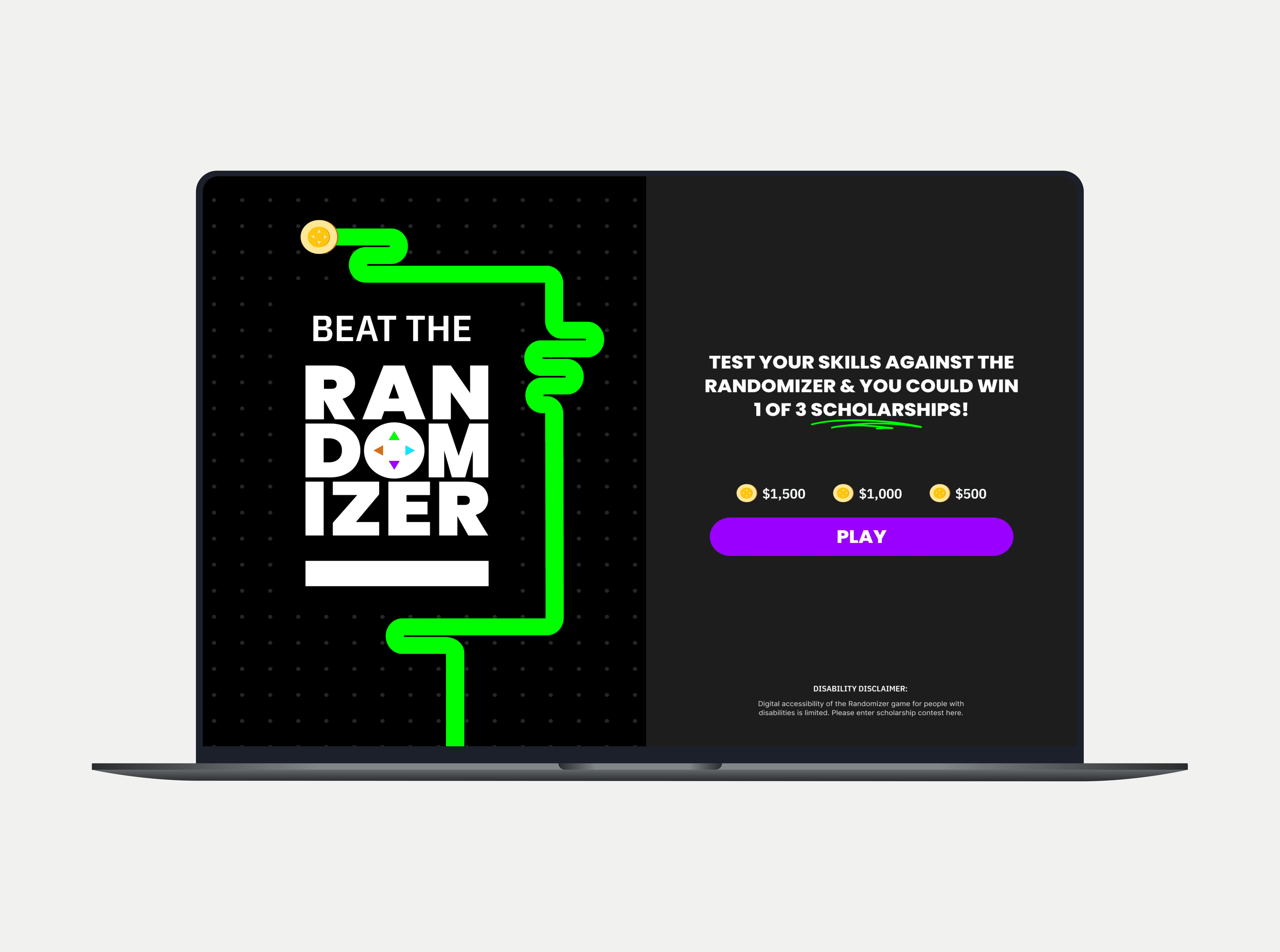AI-Enabled Experience for UCL Final
Creating an immersive fan experience for 71,412 attendees at the 2023 UEFA Champions League Final in Istanbul
Working with Adidas and UEFA, I played a key role in creating a seamless and dynamic digital experience for the 2023 UCL Final. My task was to design a user flow and research-driven interface that would guide fans through an interactive ChatGPT-based experience, offering real-time match insights, trivia, and engagement opportunities, enhancing the live event.
The Challenge
Enabling real-time interaction for over 70,000 users while ensuring a smooth, intuitive experience.
Adidas and UEFA needed a platform that would keep fans engaged throughout the event, from pre-game excitement to post-game analysis. The experience had to be frictionless for users while handling large volumes of interaction, offering features such as live commentary, trivia games, and direct access to key match stats. Balancing an innovative AI-driven interface with user-friendliness was critical to the project’s success.
Project Overview
UX Research and Flow Design for Large-Scale Events
Concept Validation: I collaborated closely with stakeholders to ensure the experience was viable for a large event environment, conducting multiple rounds of user testing to fine-tune the interface and its flow.
Technical Constraints: Given the scale of the event, the system needed to handle thousands of simultaneous interactions. My designs accounted for these technical challenges, ensuring that the user journey remained smooth even under peak loads.
UX to Inform Key Decisions: UX research was pivotal in identifying fan behavior patterns, especially how users would interact with the platform before, during, and after the game. I crafted user personas based on these findings, which informed key design decisions such as button placement, interaction points, and engagement timing.

Concept Testing
Iterative feedback through user-centric testing
To ensure the platform would resonate with users, I conducted extensive user testing, focusing on ease of use and interaction flow. The feedback helped to pinpoint friction points, which we addressed before the final rollout. By utilizing early mockups and wireframes, I validated key assumptions, from visual hierarchy to the language used in the interface, ensuring a more intuitive and welcoming experience for fans.
During testing, we identified crucial touchpoints that would enhance user interaction, such as simplifying navigation for fans unfamiliar with chat-based tools and ensuring quick, responsive feedback for real-time match commentary and trivia. This testing also guided our decisions on engagement triggers, ensuring fans would stay involved throughout the event.

Key Experience Findings
Delivering value through user feedback and data-driven design
Through rigorous testing and research, I uncovered several insights that directly impacted the final experience:
User Engagement Timing: Fans were most active during key moments of the match (goals, penalties), so we timed chat prompts and trivia engagement accordingly.
Clear Call-to-Actions: Simplified CTAs helped guide users seamlessly from one interaction to the next without confusion, ensuring a frictionless experience for both casual users and tech-savvy fans.
Real-Time Adaptation: The platform needed to be adaptable, adjusting to changing game dynamics and user interest levels. We leveraged real-time data to inform how the platform responded to fan behavior, adjusting content and engagement strategies on the fly.
These findings allowed us to create a dynamic, responsive experience that kept users engaged and eager to explore more of the platform’s features, ultimately enhancing their overall experience during the UCL Final.

User Flow
Designing a seamless user journey for a live, large-scale event
My primary role was crafting a user flow that could handle the immense scale of the event while maintaining a personalized experience for each fan. This flow accounted for multiple stages, from pre-game anticipation through live match commentary and post-game interaction. I mapped out every interaction, ensuring users could easily find relevant information or engage with interactive features without delay.
Key aspects of the flow included:
Pre-Game Engagement: Inviting users to interact with trivia and historical data about past UCL Finals, increasing anticipation.
In-Match Experience: Real-time stats, commentary, and interactive elements like voting on game outcomes.
Post-Game Wrap-Up: Offering highlights, fan feedback, and personalized content based on user interaction throughout the game.
The flow was built to scale, ensuring smooth transitions between phases and dynamic updates as the match progressed.
The Result
An unforgettable experience for 71,412 fans
The UCL Final 2023 experience received rave reviews from fans and stakeholders alike. The platform handled over 71,000 users, enabling smooth interaction across all features without technical hiccups. The real-time engagement features saw high levels of participation, with fans spending more time interacting with live commentary and trivia than expected.
This project demonstrated my ability to combine UX research and technical knowledge to create a user flow that could handle large-scale, real-time interactions while maintaining a personalized and engaging experience.
What I Learned
Harnessing UX research to design at scale
This project reinforced the importance of user research and flow design in large-scale events. By leveraging data from real users and anticipating potential bottlenecks, I ensured that the platform delivered a smooth, engaging experience for fans across the globe. I also gained invaluable experience in managing technical constraints while still providing a user-centric solution, ultimately enabling the success of this ambitious project.


